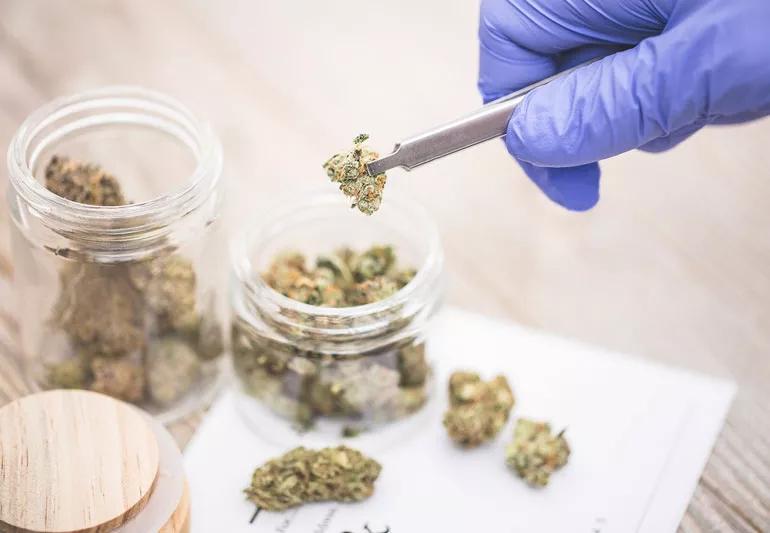No real data supporting self-medicating with cannabis

Image content: This image is available to view online.
View image online (https://assets.clevelandclinic.org/transform/16b392a3-da7b-4bd7-b413-d157c86e4b0d/marijuanaRelax-846581142-770x553_jpg)
Cannubus buds being placed into medicine jar
These days it seems like everyone from celebrities to your next-door neighbor are all boasting about the positive results of marijuana on their mental health.
Advertisement
Cleveland Clinic is a non-profit academic medical center. Advertising on our site helps support our mission. We do not endorse non-Cleveland Clinic products or services. Policy
Likely you’ve heard a story about medicinal marijuana or marijuana-derived products (like CBD) curing someone’s anxiety, depression or even post-traumatic stress disorder. But does marijuana actually help your mental health?
According to one study – the evidence is lacking.
Psychiatrist Brian Barnett, MD, did not take part in the study, but says using medicinal marijuana, or related products, to treat mental health conditions cannot be justified based on current research.
“There was pretty low grade evidence for marijuana for treatment of anxiety disorders,” explains Dr. Barnett. “The study looked at the use of marijuana for the treatment of other psychiatric disorders and found no compelling evidence at this point that marijuana, or any of its derivatives, are effective treatments for things such as depression, ADHD, Tourette syndrome or PTSD.”
Researchers reviewed 83 studies looking at medicinal marijuana, synthetic marijuana and marijuana-derived products.They studied the products’ impact on six mental health conditions – depression, anxiety, attention-deficit hyperactivity disorder (ADHD), Tourette syndrome, post-traumatic stress disorder and psychosis.
The study did not find compelling evidence for using any type of marijuana for mental health treatment.
Advertisement
The authors noted the studies reviewed were small and low-quality.
Dr. Barnett believes high-quality research is needed to determine whether marijuana and related products are effective (and safe) to treat mental health problems.
In the meantime, he says people should be aware of the known risks associated with marijuana.
“Although we don’t know a lot about the potential health benefits, we do know about risks which include addiction,” says Dr. Barnett. “We’ve seen increases in the numbers of individuals coming to the emergency room as marijuana is becoming legalized in various contexts. We also know marijuana is becoming stronger in terms of THC content than it was in the past, which can make for more adverse reactions.”
Dr. Barnett says it’s important to talk to a doctor before self-treating with marijuana, or products derived from marijuana, because there are certain conditions and medications it can interact with.
Advertisement

Delivered every Tuesday!
Sign up for our Health Essentials emails for expert guidance on nutrition, fitness, sleep, skin care and more
Learn more about our editorial process.
Advertisement
Legality, toxicity and effectiveness are all ongoing concerns
Changing habits takes time and commitment
Synthetic isn’t always safer
An expert gives the latest updates about ongoing research
The short answer from a pulmonologist
Pot may seem harmless, but it’s not to your baby
A gastroenterologist explains the connection
Connecting with others, going for a walk or focusing on sleep quality can help more than you might realize
Type 2 diabetes isn’t inevitable with these dietary changes
Applying a hot or cold compress can help with pain
Pump up your iron intake with foods like tuna, tofu and turkey